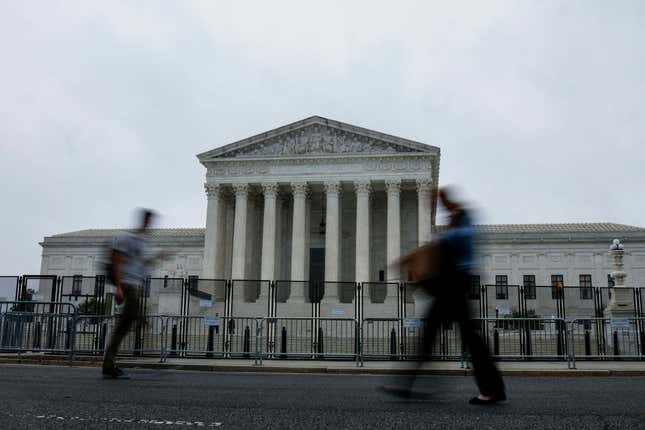
Within a barrage of decisions handed down today, the Supreme Court has limited the ability to enforce Miranda rights. As CNN reports, police are now not liable for lawsuits if they fail to let suspects know they have a right to remain silent. Ironically, the 56th anniversary of the Miranda v. Arizona ruling establishing suspects must be informed of their constitutional right to an attorney and against self-incrimination just passed.
With a 6-3 majority ruling, this ultimately shields police from potential damages in a civil lawsuit if they do not inform a suspect of their protected rights. In the case of Vega v. Tekoh, a woman claimed that hospital worker Terrence Tekoh attacked her after having a stroke after being assaulted near a Los Angeles hospital. Deputy Carlos Vega of the Los Angeles County obtained a statement from Tekoh as a confession. Vega did not read Tekoh his Miranda rights, and a jury acquitted Tekoh of criminal charges even with the information. Tekoh then sued Vegas, which a federal appeals court grained. It wasn’t clear if Vega’s report was obtained illegally.
The opinion written by Supreme Court Justice Samuel Alito determines that “a violation of the Miranda right “is not itself a violation of the Fifth Amendment.” Five other conservative judges join Alito in also saying officers informing citizens of Miranda rights is optional and there is “no justification for expanding Miranda to confer a right to sue.” This is even if what a suspect says is used as evidence against them in court.
While people can still request that incriminating evidence be suppressed in a trial, there are virtually no repercussions or incentives for police to inform people of their rights. In a time when police seem to have more discretion to do what they please, this ruling gives them even more power against accountability. Justice Elena Kagan, joined by the two other judges in her dissent, stated the court ruling is “individuals of the ability to seek a remedy for violations of the right recognized in Miranda.” Kagan also noted that a defendant who is “wrongly convicted and spends years in prison will no longer have any remedy for that harm.”

